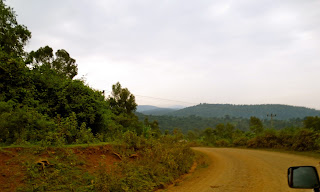Where are you from? Where do you live? Where is Home?
At first the answer may seem to be the same to all
questions, and it very well might be for some people. BUT if you are like me
and hopelessly continue to seek new adventures, the answer can be a little more
confusing that immediately meets the eye.
I vividly remember in my first year of university, when I was
a resident of MacIsaac hall—Go MAC GO—The first time I referred to it as
“home”; I was sitting in the dinning hall and said I had to go “home” and get
something, and then it hit me, what is home now? Is it my 10 square foot room,
which I share with my new best friend? Or is it where my parents live in New
Brunswick? Now that my parents have moved from New Brunswick to Halifax it complicates
this question even more and I tend to flop back and for with what I define as
“home” or default to “the Maritimes”.
But this is either here nor there, the point I am looking to
get to at are the steps which lead us to feel like a new space is “home”. The
one big thing I find is that it is a feeling of relief in the pit of your
stomach after traveling somewhere else and returning to the comfort of your new
“home”. Each place I have lived for any extended period of time has had a
landmark that somehow manages to subtlety scream to your insides that you are
ALMOST BACK to a comfortable place where you can completely relax. In New
Brunswick, it was in Hampton, or the turn where on a clear day you could see
the ‘deephole’ swimming spot. While living in Antigonish it was the red barn at
barneys river, in Lille it was the annoying sound that the trains would make to
let you know you had arrived at Gare Lille Flandres, In Ghana it was the Market
where you would turn off the main highway to go towards Ada, typically stopping
at a Gas station where Kofi would fill the tank of his Subaru... And here in
Addis, in its own weird way it’s the traffic, but more specifically the grain
silo’s close at the junction by the entrance to the city. The first time this
happens in a new “home” it always takes me by surprise, quite pleasantly though
I might add.
This sense of “home” I have found usually come at the same
time as things start to have a proper “place”, you know where you put your
keys, or if the measuring cups aren’t in the ‘right’ drawer. I personally feel
like the moments when you realize you have made a new place a home, is one of
the most satisfying about traveling and living abroad. You realize that no
matter the circumstance you can “make it work”. I also think it speaks volumes
of the people who you are living with and the locals. Because they can either
speed up or slow down the process, if they are helpful or a pain.
For lack of a better explanation it’s having established
ways of navigating daily life or a routine. So why am I writing this now?
Because after being in Yabello for one week I felt that sense of comfort
driving back into the chaotic streets of Addis Ababa. And then again, when
showing Adam (our coordinator from the Coady) around Addis, I was once again
reminded that this crazy city, which in my first few weeks left my head
spinning, had in fact become my home.
I honestly feel that one of the greatest things about going
away is not only that you are able to experience new things, but that you are able to appreciate the people who are rocks in
your life so much more when you're away from them.
I am set to travel to Southern Ethiopia (likely without
internet) until the 23rd of August; not only am I looking forward to
the amazing experience that I anticipate in and of itself, but I am also
excited to return to what I now know as my “home” in Addis Ababa.
Sending all my love from Addis,
Steph x
And as always, even if I may not be able to respond for a
while, please feel free to get in touch via my e-mail:
steph.milo.mackinnon@gmail.com













